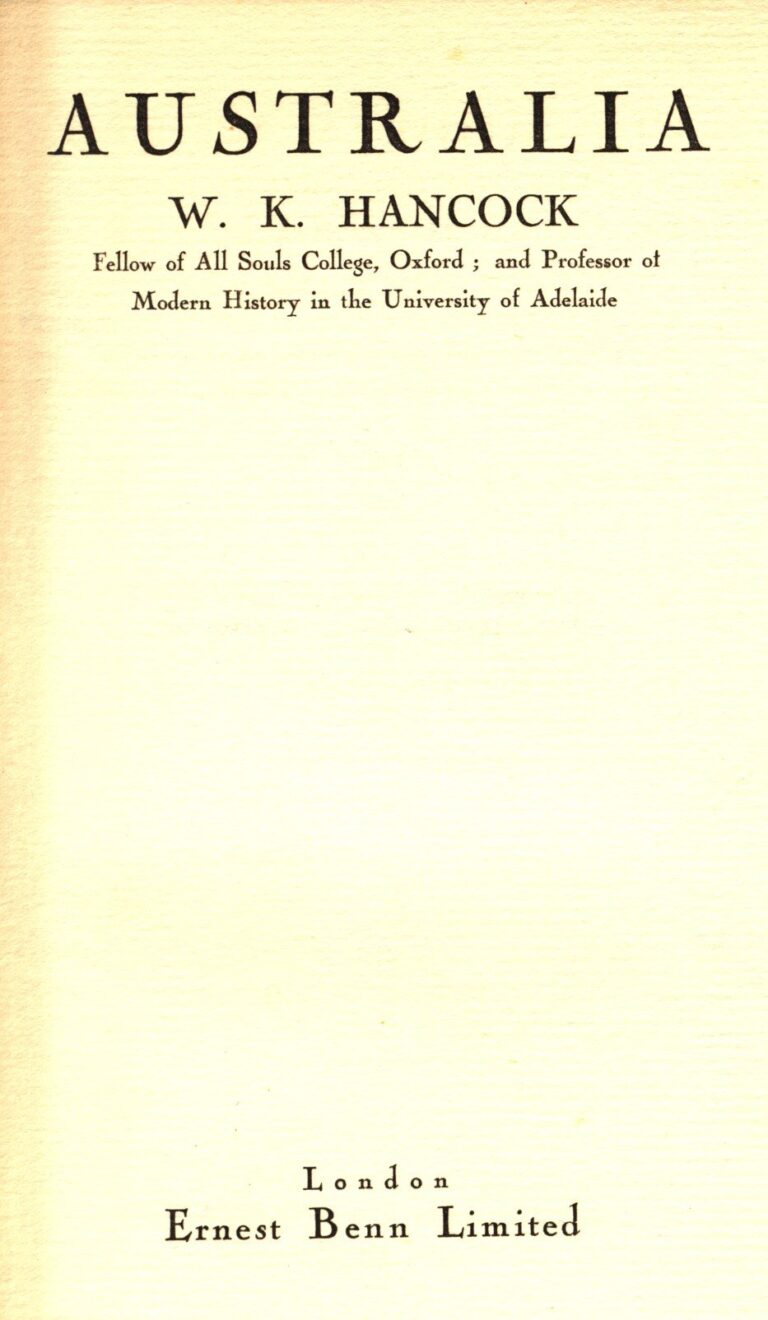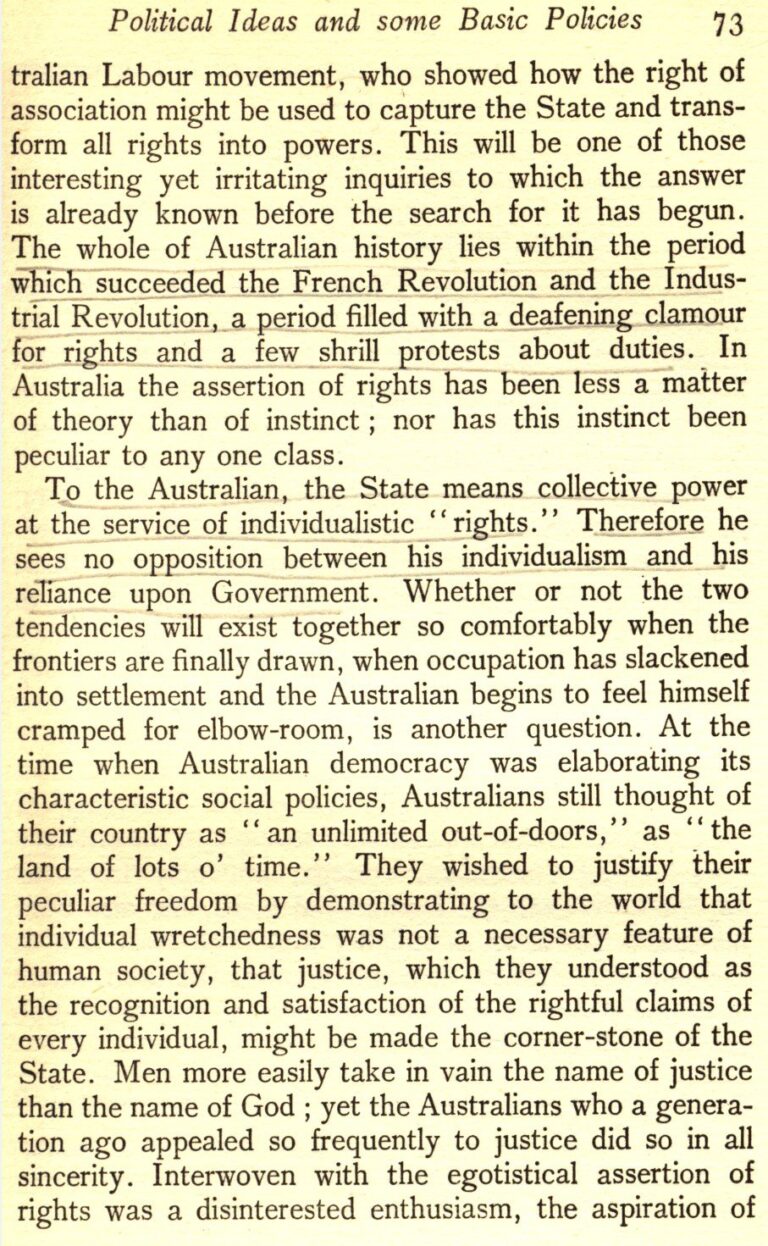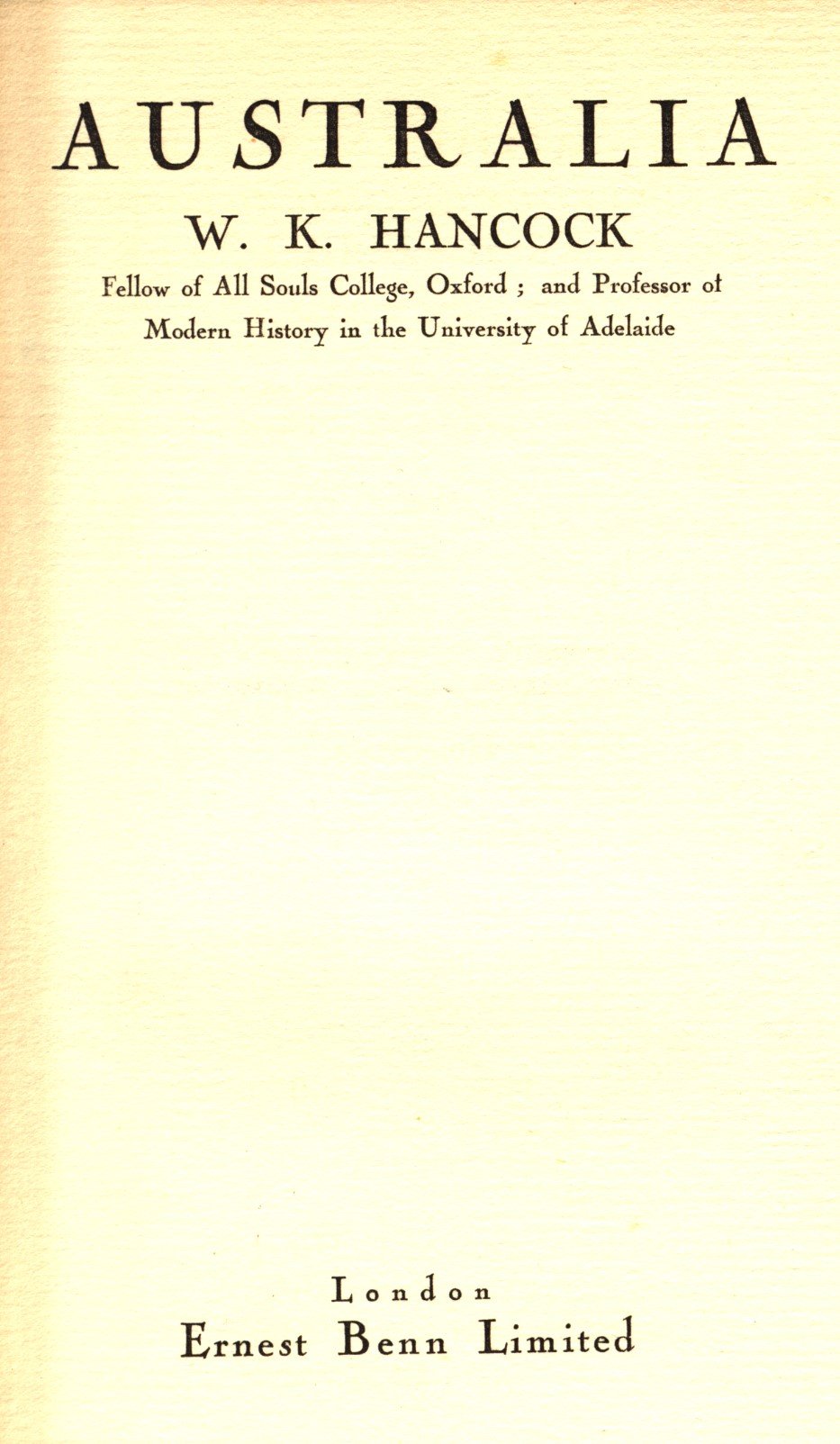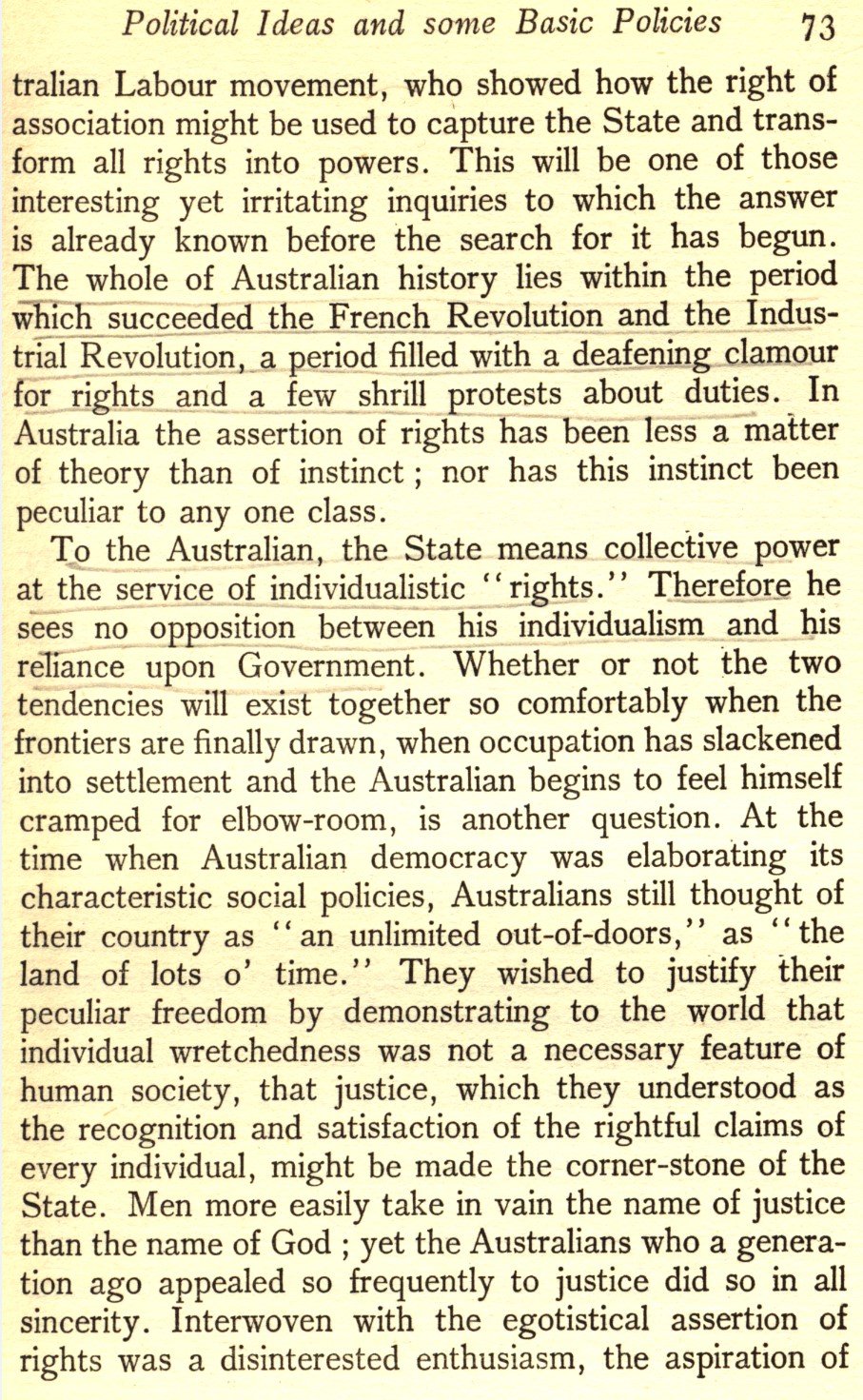W.K. Hancock, Australia (1930)
William Keith Hancock was one of Australia’s most influential historians.
Born in Fitzroy in 1898 as the son of a clergyman, Hancock’s family moved to the rural town of Bairnsdale in Eastern Victoria when he was two. This exposure to the ‘real Australia’ was to prove highly influential in his shaping his later understanding of the national character. Returning to the city at age 10, Hancock had to earn a scholarship to attend Melbourne’s Church of England Grammar School, and he won a Humane Society Medal for rescuing a child from drowning in 1908.
With the exception of the latter, there were many similarities between Hancock’s childhood experience in rural Victoria and as a scholarship boy with what Menzies had experienced, and as young men they would briefly be contemporaries at the University of Melbourne. Both served concurrently as members of the University Association, while Hancock succeeded Menzies as editor of the Melbourne University Magazine. While he initially enrolled in Classics, Hancock switched to History under the tutelage of Professor Ernest Scott, and quickly demonstrated immense talents. Graduating with first class honours, Hancock took up a temporary lectureship at the University of Western Australia where Edward Shann would expose him to economic history.
Winning a Rhodes Scholarship, Hancock obtained a BA and then an MA from Oxford, and in 1926 he took up a post at the University of Adelaide which made him the youngest professor in the British Commonwealth. In 1930 he produced his seminal work, Australia, which functioned as a critique of Australian protectionism, state socialism and even White Australia – core aspects of what would later be dubbed the ‘Australian Settlement’. Hancock famously observed that Australians had ‘come to look upon the State as a vast public utility’ which could meet most of their needs, but he thought that this was unsustainable and that the nation needed economic reform if it was to become globally competitive (directly presaging the events of the 1980s).
While Menzies would not dismantle the Australian Settlement while in office, he was certainly aware of many of its flaws. Knowing Hancock from their university days, he appears to have read Australia quite intently and has marked out many of the book’s most salient passages. These include critical analysis of industry reliance on subsidies, examinations of how the financial relationship between the Commonwealth and the States had seen the former come to dominate the latter, and this extended passage which summed up Hancock’s central thesis:
‘The Australians have always disliked scientific economics and (still more) scientific economists. They are fond of ideals and impatient of technique. Their sentiments quickly find phrases, and their phrases find prompt expression in policies. What the economists call ‘‘law”- they call anarchy. The law which they understand is the positive law of the State—the democratic State which seeks social justice by the path of individual rights. The mechanism of international prices, which signals the world’s need from one country to another and invites the nations to produce more of this commodity and less of that, belongs to an entirely different order. It knows no rights, but only necessities. The Australians have never felt disposed to submit to these necessities. They have insisted that their Governments must struggle to soften them or elude them or master them. In this way they have created an interesting system of political economy. It will be necessary to examine the chief features of this system, which embodies the dominating ideas and purposes of the Australian people.’
Though Hancock had already produced his most influential work while he was still in his early thirties, he would go on to have a highly decorated career and be knighted. In the late 1950s he would take up a posting at the Australian National University, through which he would once again have significant personal contact with Menzies. In particular, surviving in Menzies’s papers are warm letters between the two men discussing the need to set up a ‘Department of the History of the Art of Cricket’ at ANU.
You might also like...
Sign up to our newsletter
Sign up for our monthly newsletter to hear the latest news and receive information about upcoming events.





